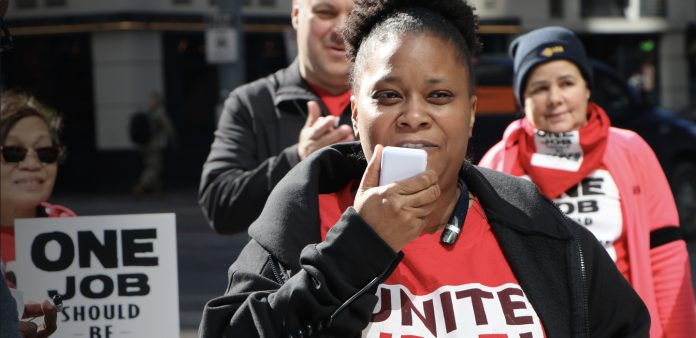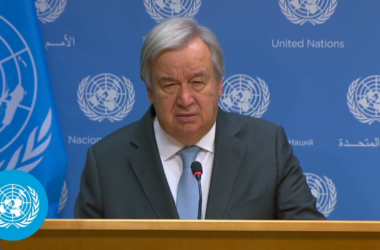As the U.S. hospitality industry navigates its post-pandemic recovery, a critical situation is unfolding that highlights the ongoing need for responsible management and balanced economic policies. Approximately 13,500 hotel workers across major cities such as Boston, Honolulu, Providence, and San Francisco are poised to vote this week on whether to strike, driven by demands for higher wages and improved working conditions.
Workers from leading hotel chains, including Hilton, Hyatt, Marriott, and Omni, are expressing frustration over stagnant wages and increased workloads. The pandemic-era policies, which led to significant layoffs and furloughs, have left many workers facing higher job demands without corresponding pay increases. This has been exacerbated by changes like the elimination of daily room cleanings, which have not only increased the messiness of hotel rooms but also further burdened the staff.
The situation underscores a broader issue of economic balance. While hotel industry profits have surged to record levels, reaching $101.3 billion in 2022, staffing levels have been reduced by 13% from 2019 to 2022. This disparity between booming profits and worker conditions is fueling calls for strike actions.
Unite Here, the union representing over 40,000 hotel workers across 20 cities in the U.S. and Canada, is leading the charge. They argue that while the industry is enjoying unprecedented financial success, workers are struggling with rising living costs and demanding workloads. The union’s leadership has expressed concerns that the industry’s response to the pandemic was used to justify cuts in staffing and guest services, placing additional strain on workers.
A striking example is Anabel Castro, a housekeeper at Marriott’s Westin Moana Surfrider in Honolulu. After being furloughed for about two years due to the pandemic, Castro has returned to work under increased pressures and now manages multiple jobs to support her family. Similarly, Theresa Fiorino, a room service cashier at the Hilton Boston Logan Airport, reported having to manage higher workloads due to reduced staffing, which has driven her to seek additional part-time work.
These workers’ calls for wage increases and better working conditions reflect broader economic challenges. While some critics suggest that hotel chains are prioritizing profits over people, it is essential to consider the broader economic context. The push for substantial wage increases comes at a time when inflation is affecting many sectors and complicating financial planning for businesses.
This situation serves as a reminder of the importance of a balanced approach to labor relations and economic management. As hotel workers prepare to vote on strike actions, the broader implications for the hospitality industry and its recovery from the pandemic are clear. Responsible management and thoughtful policies will be crucial in ensuring that both workers’ needs and business interests are fairly addressed.








